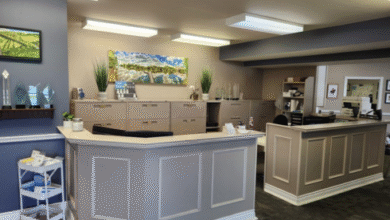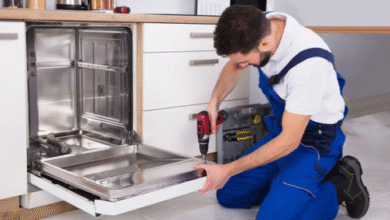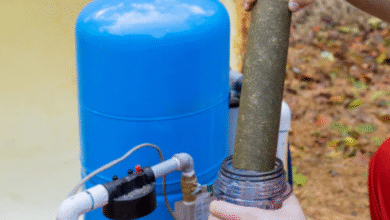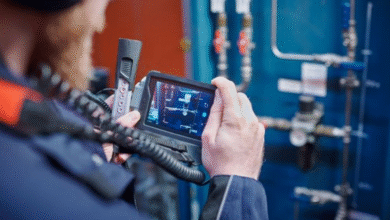Clean Water, Clear Business: Why Filtration Systems Matter More Than You Think
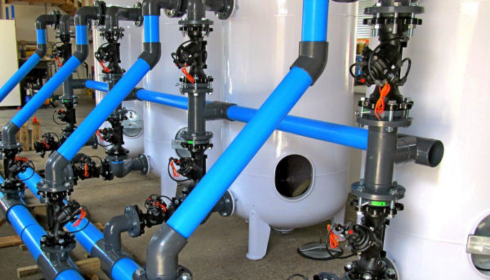
When you step into a restaurant, an office, or even a hotel, chances are you don’t immediately think about the water. You notice the lighting, maybe the décor, and if you’re hungry, the smell of what’s cooking. But water—something so simple and often overlooked—has a massive influence on customer experience, employee well-being, and even the reputation of the business itself. The quality of water running through those pipes isn’t just about taste; it’s about trust, safety, and efficiency. And that’s exactly where good filtration systems make their quiet entrance.
Why Clean Water is a Non-Negotiable
Think about how many times water is used in a commercial setting. It’s in the coffee you sip during a morning meeting, the ice cubes in your soda, the pasta boiled in a restaurant kitchen, or the showers at a hotel after a long day of travel. Poor water quality doesn’t just leave behind bad taste or cloudy glassware—it can leave behind an impression, and not the good kind. Customers today are more aware than ever, and one small detail like strange-tasting water can spiral into a negative review. On the flip side, crystal-clear water enhances every little touchpoint, often without anyone consciously noticing.
The truth? A solid water filtration system isn’t just a utility add-on; it’s part of the brand experience.
Restaurants: Serving Purity on Every Plate
Let’s start with the obvious—restaurants. Food is deeply personal, and people go out to eat expecting a certain standard. Now imagine if the soup has an odd aftertaste or the coffee feels “off.” Most of the time, it’s not the recipe or the beans—it’s the water. Investing in a restaurant water filtration system isn’t just about keeping the water free of sediments or chlorine; it’s about protecting flavor integrity. Chefs rely on consistent water quality to ensure that what leaves the kitchen is exactly what they intended.
Beyond taste, there’s also the behind-the-scenes advantage. Clean water extends the life of dishwashers, ice machines, and even the plumbing itself. Hard water can wreak havoc on equipment, leaving mineral deposits that shorten lifespan and drive up repair bills. Restaurants are already juggling razor-thin margins—water problems shouldn’t be another line item.
Offices: Hydration That Works Harder
Walk into any office and you’ll find people tethered to their reusable bottles or hovering around the water cooler. It might seem small, but hydration is directly tied to productivity and employee satisfaction. If the water has a strange smell, looks cloudy, or tastes metallic, employees notice—and they complain, even if quietly. Installing an office water filtration system isn’t just a matter of cutting down on bottled water costs (though that’s a nice perk). It’s about cultivating a workplace where people feel cared for in subtle but meaningful ways.
Think about it: an office that prioritizes wellness signals to staff that their well-being isn’t an afterthought. Filtered water reduces contaminants, keeps everyone healthier, and even improves the taste of that essential mid-day coffee. It’s a small step with ripple effects—less absenteeism, more energy, and fewer plastic bottles stacking up in the recycling bin.
Hotels: Elevating Comfort Beyond the Lobby
Hotels operate in a world where perception is everything. From the lobby to the linens, every detail shapes the guest experience. But here’s what many don’t realize—water is a silent influencer. When a guest showers and feels residue on their skin, when ice in their cocktail looks cloudy, or when tea in the morning has an odd bite, they notice. Maybe not consciously, but the overall sense of quality takes a hit. That’s why a hotel water filtration system isn’t a luxury; it’s a necessity.
Clean, filtered water elevates the entire stay. It means softer linens, spotless glassware, and showers that leave guests refreshed rather than dry or irritated. For hotels that depend on reviews and repeat visits, this small operational upgrade translates into long-term loyalty. Guests may never comment directly on the water quality, but they will absolutely remember how comfortable and seamless their experience felt.
Beyond Taste: The Environmental and Cost Angle
Another point worth talking about is sustainability. A lot of businesses still rely heavily on bottled water, thinking it’s the simplest way to ensure quality. But that choice carries a hefty environmental footprint and a long-term financial cost. A single filtration system can replace thousands of plastic bottles a year. For a large office or hotel, the numbers add up quickly, both in dollars saved and waste avoided.
Maintenance costs are another overlooked benefit. Hard water and unfiltered contaminants can destroy appliances slowly and quietly. When you extend the life of boilers, coffee machines, or laundry equipment by filtering water, you’re essentially reducing capital expenditures over time. It’s a win-win: eco-friendly and cost-effective.
Choosing the Right System: No One-Size-Fits-All
The tricky part is that not all water is the same. The needs of a coastal hotel are different from a midwestern office building or a high-traffic restaurant in a historic district. Some areas have high chlorine, others deal with sediment, and in many regions, hard water is the main culprit. That means businesses shouldn’t grab the first filtration unit they see online. A proper water analysis comes first—what’s actually in your pipes? From there, solutions can range from reverse osmosis to activated carbon filters or multi-stage systems that tackle multiple issues at once.
The smartest approach is to see this as an investment, not a box to tick. Go for reputable providers, make sure the system scales with your water usage, and don’t overlook the importance of maintenance. A neglected filter can become more harmful than no filter at all.
The Subtle Art of Invisible Care
Here’s the interesting part: when a filtration system works, no one really notices. There’s no applause for the clear ice in a cocktail or the smooth taste of office coffee. Guests don’t rave about soft towels that owe their freshness to clean water. Employees don’t write thank-you notes for not having to buy bottled water. And yet, all those details add up, quietly reinforcing the perception of quality and care.
In hospitality and business, perception is reality. People may not consciously recognize the role water plays, but they do feel it. And feelings are what bring them back.
Wrapping It Up
Water is one of those things we take for granted until it goes wrong. A metallic taste, a cloudy glass, a faint smell—suddenly it’s impossible to ignore. For restaurants, offices, and hotels, clean water isn’t just about health regulations or avoiding complaints; it’s about creating experiences people want to return to.
So, if you’re running a business and haven’t thought much about the water flowing through your taps, it’s probably time. A thoughtful filtration system is more than equipment—it’s an invisible partner in delivering excellence. And the beauty of it is, when done right, you don’t notice it at all. You just enjoy the experience, and that’s exactly how it should be.

